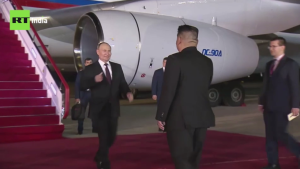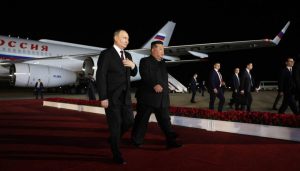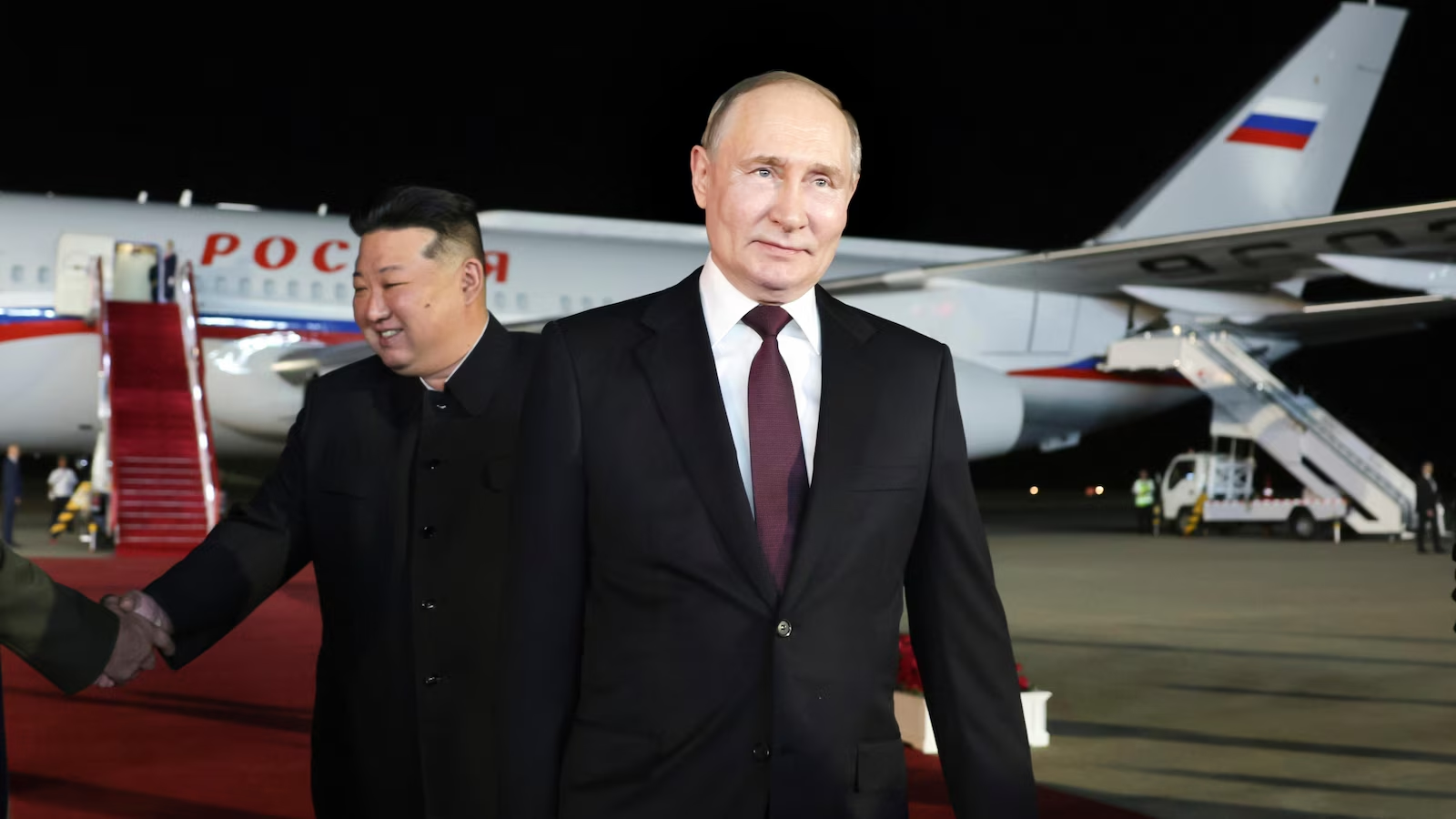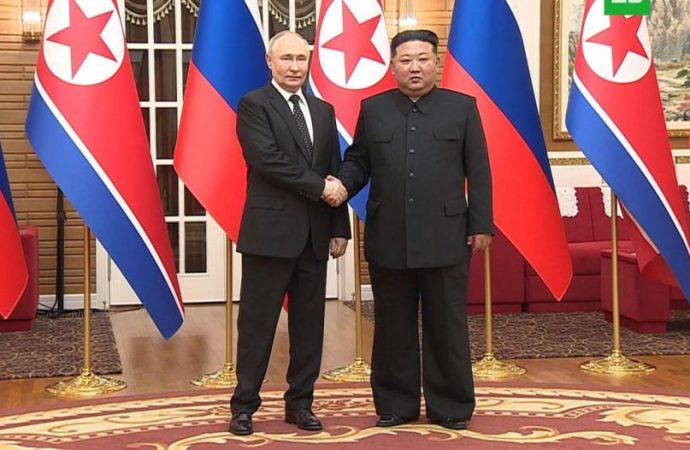As I reflect on the current geopolitical landscape, it’s increasingly evident that the Biden administration’s strategies toward the Russia-North Korea axis are faltering, presenting a significant test that, so far, seems to be met with indecision and ineffective responses. The dynamics of international relations are complex, yet the essence of effective leadership on the global
Biden’s administration falters in countering Russia-North Korea axis

Image by : Yandex
The strategy—or, more accurately, the lack thereof—employed by the Biden administration against the burgeoning alliance between Russia and North Korea is a cause for concern. This ineffective approach has done little to curb the ambitions of both nations, whose provocations have only grown bolder. The lack of decisive action on the part of the United States not only emboldens these provocations but also signals a worrying inability to confront and counteract the maneuvers of these two nations effectively.
Missteps in engaging with Putin and Kim Jong Un Engagement with adversaries is a delicate dance that requires both firmness and diplomacy. Unfortunately, Biden’s approach to dealing with Vladimir Putin and Kim Jong Un has been marked by failures that have allowed Russia’s aggressive international postures and North Korea’s defiance to flourish. The administration’s engagement strategy, or lack thereof, with North Korea, in particular, lacks clarity and impact, leaving much to be desired in terms of tangible outcomes that could signal a shift towards de-escalation and stability.
Overlooking the cyber threats emanating from Russia and North Korea
One of the most glaring oversights of the Biden administration has been its underestimation of the cyber threats posed by Russia and North Korea. Ignoring these threats not only weakens national security but also tests the leadership’s resolve in protecting the United States from such insidious forms of aggression. The digital battlefield is increasingly becoming a forefront of international conflict, and the administration’s lack of a robust response to these cyber threats is a troubling indicator of its overall approach to national and global security.
Weak responses to military provocations

Image by : Yandex
The leniency shown by Biden in response to Russia’s aggressive military maneuvers and North Korea’s provocations has been nothing short of emboldening for these regimes. This inadequacy in the U.S. response under Biden’s watch signals a weakness that these adversarial states are all too willing to exploit. Military provocations require firm, decisive actions that communicate intolerance for such behavior; unfortunately, the current administration’s responses have fallen far short of this mark.
Ineffectiveness of current economic sanctions
Economic sanctions have long been a tool in the arsenal of international diplomacy, aimed at curbing undesirable actions by states. However, the resilience of Russia’s economy and the continued missile tests by North Korea mock the effectiveness of the sanctions currently in place. This not only questions the utility of such sanctions but also highlights the need for a reevaluation of how economic pressures are applied and enforced to ensure they achieve their intended impact.
Failing to rally international support against North Korean human rights violations
The human rights abuses perpetrated by the North Korean regime are well-documented and horrific. Yet, the Biden administration’s approach to addressing these abuses, particularly in the context of Russia and North Korea’s alliance, has been lackluster. The failure to galvanize international support and action against these violations not only emboldens the perpetrators but also signals a worrying disregard for human rights on the global stage—a stance that undermines the moral authority of the United States.
Misjudging the strategic partnership between Russia and North Korea

Image by : Yandex
Underestimating the strategic partnership between Russia and North Korea is a grave misstep that risks global security stability. The Biden administration’s approach to this alliance has been marked by a failure to recognize its implications fully and to formulate an effective strategy to address it. This alliance poses a multifaceted threat that extends beyond regional concerns, challenging the global order and demanding a more robust and strategic response.
Compromising the security of U.S. allies in the face of growing threats
The aggression displayed by Russia and the missile tests conducted by North Korea not only threaten the United States but also undermine the security of its allies. The aggression towards NATO members by Russia exposes these allies to heightened security risks, while North Korea’s missile tests threaten regional stability in Asia, challenging U.S. alliances. The Biden administration’s failure to adequately respond to these threats compromises the safety and security of these allies, undermining the trust and cooperation necessary for collective security.
Conclusion
In conclusion, the Biden administration’s handling of the Russia-North Korea axis presents a litany of missed opportunities and missteps that have only served to embolden these adversaries. The lack of a coherent, robust strategy to counteract the growing alliance between Russia and North Korea, coupled with inadequate responses to military provocations, cyber threats, and human rights violations, has compromised not only U.S. security but also the stability of the global order. As these challenges persist, it becomes increasingly clear that a reassessment and recalibration of the United States’ approach are urgently needed to navigate the complexities of these adversarial relationships effectively.
















